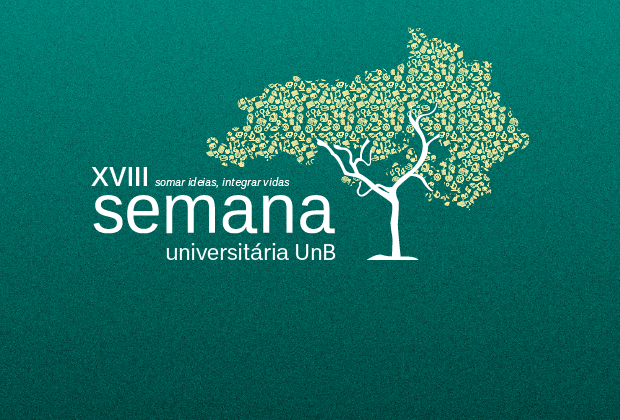Closure of Semana Universitária addresses internationalization
Lecture this Friday (28) brings to the community information on academic cooperation from UnB and Latin American universities

After a week of intense programming, the Semana Universitária 2018 is coming to an end. To crown the period entirely devoted to university extension, UnB chose as its theme the internationalization, which is the focus of the institution in 2018 and aims to take the University to higher levels.
The main closing activity is scheduled to take place at 10:30 am this Friday (28), at the Darcy Ribeiro Memorial, the Beijódromo. The meeting focuses on publicizing the presence of UnB in Latin American countries. Under the title Integrating Universities in Latin America: Challenges of Southern Internationalization, the event aims to present international academic cooperation programs and actions with the involvement of the University and to promote debates. The representative of the Association of Universities Group Montevideo (AUGM), Alvaro Máglia has confirmed his presence.
"It is essential to show how a partnership of solidarity will position our universities with a sense of belonging and how it is necessary to build educational institutions of relevance and excellence, ready to face the challenges of academic colonialism, inclusion, development, and the well-being of our populations," states Alvaro Máglia referring to the content of the discussion.
UnB has sought to expand its influence in Latin American countries, especially from the Southern Cone. Recently it has joined the list of AUGM member institutions. Created in 1991, the association brings together autonomous universities from six countries to promote the strengthening of public higher education, with the mutual development and diffusion of scientific and technological research, teaching and extension activities, and the consolidation of high-level human resources.
Argentina, Brazil, Bolivia, Chile, Paraguay and Uruguay are member countries of the group, currently with 35 universities. The membership takes place by means of indication and approval of the other participants. Orchestrating the Semana Universitária, the dean of UnB Extension (DEX), Olgamir Amancia, sees the entrance of the University in the group as a paramount movement.
"By strengthening this articulation, we are fostering exchange and partnership with peoples of similar identity to ours, as well as reversing a historical logic of dialogue stronger only with Europe and the United States. Undoubtedly, this puts us in another level of interlocution with the great universities ", she believes.
Such approaching directly benefits the academic community, which can strengthen relations with institutions in neighboring countries to produce knowledge, as well as to know different cultures. These are perspectives that meet the objectives of the Internationalization Plan, guiding the actions of UnB in the area.
Recent academic cooperation initiatives have shown how internationalization and university extension may share related interests. In this sense, DEX has implemented the South-South Network Special Intercultural Training Program. Implemented in partnership with the Latin American Faculty of Social Sciences (Flacso) - an international body operating in Latin American and Caribbean countries, as well as Spain - the strategy involves the interdisciplinary training in the extension modalities for undergraduation and specialization, based on the exchange of experiences and knowledge produced by South American institutions.
INTERNATIONAL CULTURE – Before the official closing, at 9am, also at the Darcy Ribeiro Memorial, the community will be presented to the catalog of the first edition of the OCA Program of International Artistic Residency. The Program is the result of performance and educational activities carried out by selected members from the first call of the program, offered by the Latin-America Cultural House (CAL / DEX), together with of the Organization of Iberic-American States (OEI).
With the proposal of promoting cultural internationalization, the initiative brings together artists from Latin American and Caribbean countries for an immersion in Brasília, from where they can deliberate upon interventions that reformulate the urban dynamics. Throughout the experience, those selected had the opportunity to exchange cultural, artistic and intellectual experiences in interaction with UnB students, public schools and the community in general.
"This residence is important in that it puts us in the position of identifying and thinking the issues common to Latin American peoples, such as our affinities and differences," explains CAL director, Alex Calheiros. The six artists convened in the second edition of the residence will also be presented.

